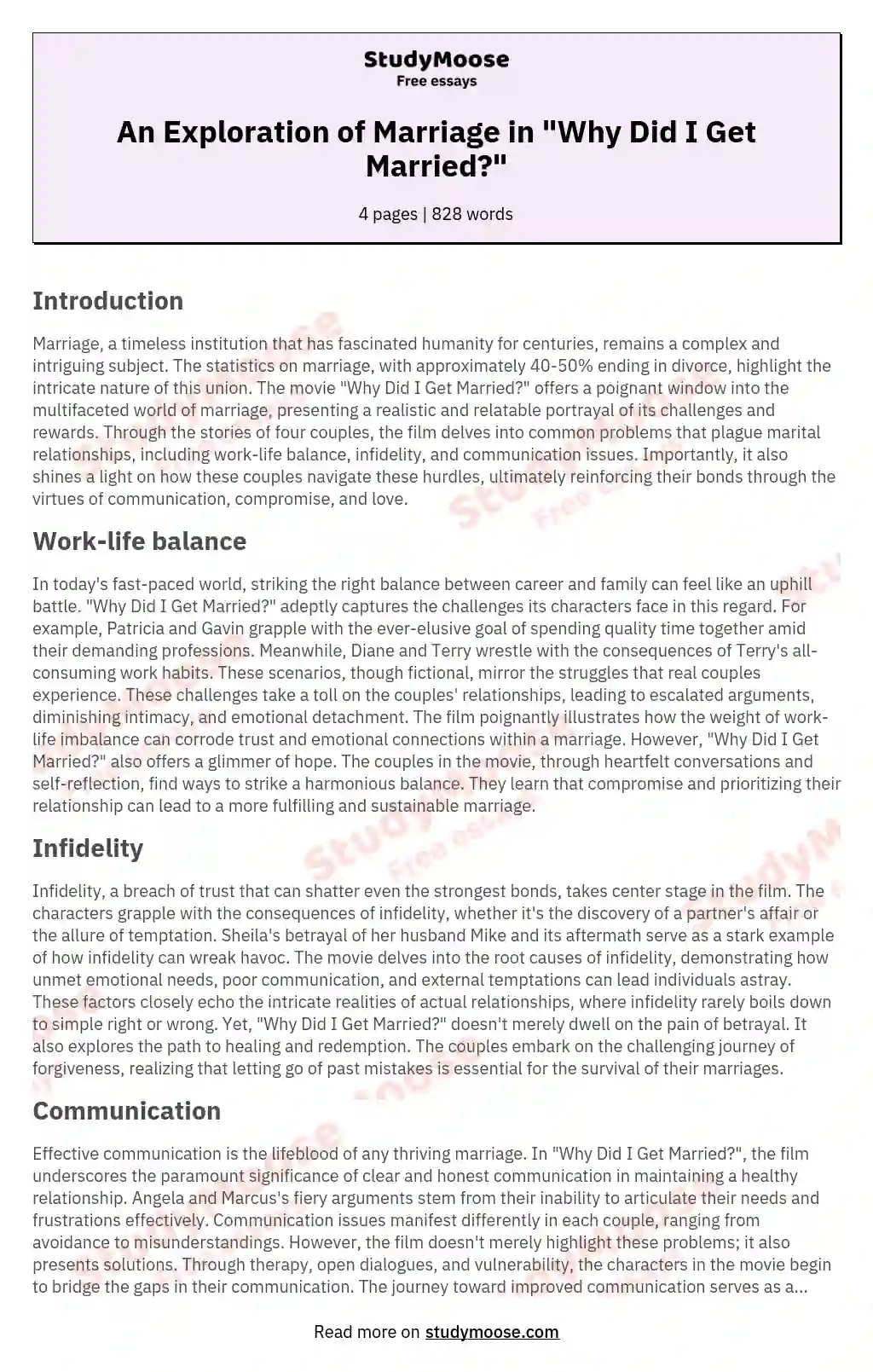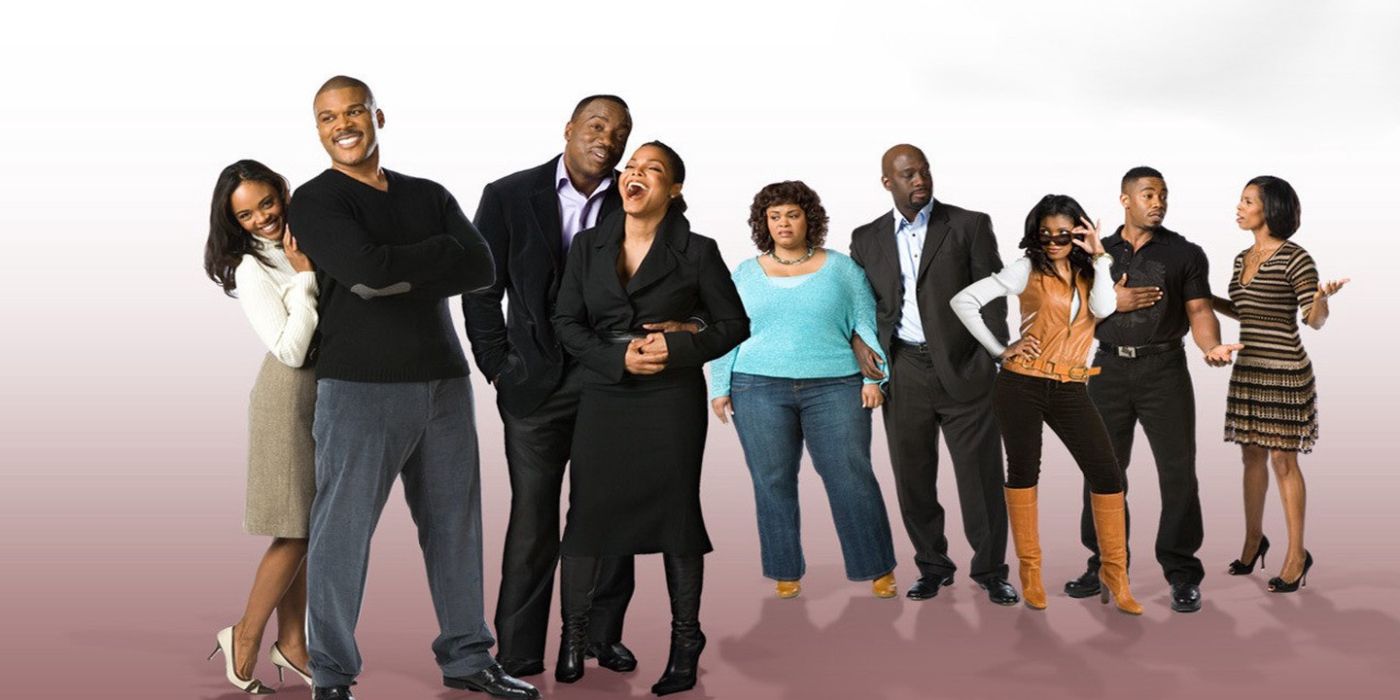Why Did I Get Married? A Free Exploration of Dedication, Battle, and Connection
Associated Articles: Why Did I Get Married? A Free Exploration of Dedication, Battle, and Connection
Introduction
With nice pleasure, we’ll discover the intriguing matter associated to Why Did I Get Married? A Free Exploration of Dedication, Battle, and Connection. Let’s weave fascinating data and supply recent views to the readers.
Desk of Content material
Why Did I Get Married? A Free Exploration of Dedication, Battle, and Connection

Tyler Perry’s Why Did I Get Married? is not only a movie; it is a cultural touchstone exploring the complexities of Black relationships and the often-uncomfortable truths of long-term dedication. Whereas the film’s availability without spending a dime viewing varies relying on streaming companies and licensing agreements (and due to this fact cannot be definitively said as "free" throughout the board), its enduring influence on discussions surrounding marriage, infidelity, and communication warrants a deep dive into its themes and lasting relevance. The movie’s accessibility, even when not constantly free, contributes to its widespread affect, fueling conversations concerning the realities of marriage far past the silver display screen.
The movie facilities round 4 {couples} – Dianne and Marcus, Angela and Terry, Sheila and Mike, and Patricia and Gavin – who collect for a weekend getaway at an expensive mountain resort. Initially, the environment is jovial, full of the same old banter and inside jokes of long-standing friendships. Nevertheless, because the weekend progresses, simmering tensions and long-repressed resentments bubble to the floor, exposing the vulnerabilities and fractures inside every relationship. Perry masterfully makes use of the confined setting to intensify the drama, forcing the characters, and by extension the viewers, to confront uncomfortable truths about their very own expectations, compromises, and needs inside their marriages.
One of many movie’s most compelling facets is its unflinching portrayal of infidelity. The revelation of extramarital affairs is not handled as a plot machine for affordable thrills; as a substitute, it serves as a catalyst for exploring the deeper points plaguing these relationships. The movie would not shrink back from the ache, betrayal, and anger that infidelity causes, nevertheless it additionally delves into the underlying the explanation why these people strayed. The exploration is not simplistic; it acknowledges the complicated interaction of unmet wants, communication breakdowns, and private insecurities that contribute to such devastating decisions.
As an illustration, Marcus’s infidelity stems from a mix of things: his feeling of inadequacy compared to his profitable spouse, Dianne’s demanding profession, and an absence of emotional intimacy inside their marriage. Equally, Terry’s struggles along with his spouse Angela’s ambitions and her perceived neglect of their relationship result in his personal emotional detachment and eventual infidelity. The movie would not excuse their actions, nevertheless it supplies context, prompting viewers to think about the systemic points and societal pressures that may contribute to marital discord.
Past infidelity, Why Did I Get Married? tackles a mess of relatable challenges confronted by {couples} in long-term relationships. The movie explores the influence of societal expectations on Black marriages, highlighting the stress to take care of an ideal picture whereas grappling with private struggles. The characters’ numerous backgrounds and experiences contribute to a nuanced portrayal of Black marital dynamics, transferring past stereotypical representations usually present in mainstream media.
The movie additionally shines a light-weight on the significance of communication, or relatively, the devastating penalties of its absence. The characters’ incapacity to overtly and actually talk their wants, fears, and frustrations fuels a lot of the battle. The weekend retreat turns into a crucible, forcing them to confront their communication breakdowns and the ensuing harm to their relationships. The movie subtly underscores the significance of lively listening, empathy, and vulnerability in fostering wholesome and sustainable relationships.
One other essential theme explored is the idea of forgiveness and reconciliation. Whereas the movie would not supply straightforward solutions or neatly tied-up resolutions, it emphasizes the arduous technique of therapeutic and rebuilding belief after betrayal. The characters grapple with their very own capability for forgiveness, confronting their very own flaws and the influence of their actions on their companions and their buddies. The movie’s ending is not a fairytale; it is a sensible portrayal of the continuing work required to take care of a wholesome relationship, even after important setbacks.
The movie’s influence transcends its narrative; it serves as a platform for vital conversations about race, gender, and societal expectations throughout the context of marriage. The characters are usually not merely archetypes; they’re complicated people grappling with relatable points, making their struggles deeply resonant with audiences. The movie’s success lies in its capability to elicit empathy and understanding, encouraging viewers to replicate on their very own relationships and the challenges they face.
The accessibility of the movie, even when not perpetually free, has contributed considerably to its cultural influence. Its availability on numerous platforms permits for broader discussions and engagement with its themes. This accessibility permits for numerous audiences to have interaction with the movie’s complicated portrayal of Black relationships, fostering conversations concerning the challenges and triumphs of marriage throughout the Black neighborhood and past.
Nevertheless, it is essential to acknowledge that the movie isn’t with out its criticisms. Some viewers discover the characters’ habits overly dramatic or unrealistic. Others critique the movie’s reliance on melodrama and its considerably simplistic options to complicated points. These criticisms spotlight the subjective nature of creative interpretation and the various views on marriage and relationships.
Regardless of these criticisms, Why Did I Get Married? stays a major cultural artifact. Its unflinching exploration of the complexities of marriage, its nuanced portrayal of Black relationships, and its accessibility, even when not at all times free, have contributed to its enduring legacy. The movie’s capability to spark conversations, problem assumptions, and encourage self-reflection makes it a helpful contribution to the continuing dialogue surrounding dedication, battle, and connection within the fashionable world. The questions it raises – about communication, forgiveness, and the enduring energy of affection – proceed to resonate lengthy after the credit roll, making it a movie price revisiting and discussing, no matter its fluctuating availability as free viewing. In the end, the movie’s worth lies not simply in its leisure worth, however in its capability to impress significant dialogue and encourage a deeper understanding of the intricacies of human relationships.








Closure
Thus, we hope this text has supplied helpful insights into Why Did I Get Married? A Free Exploration of Dedication, Battle, and Connection. We thanks for taking the time to learn this text. See you in our subsequent article!